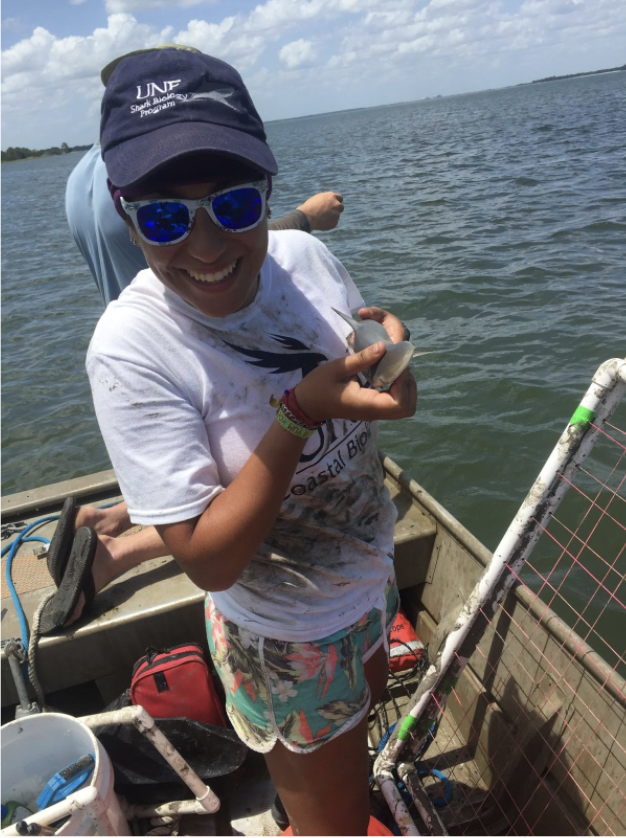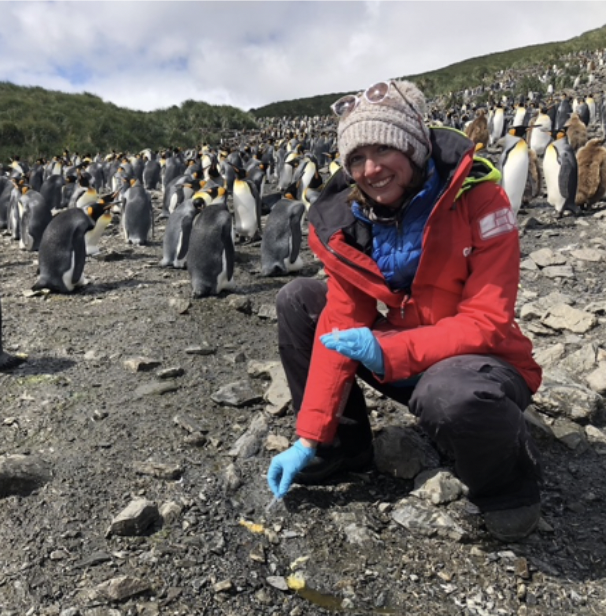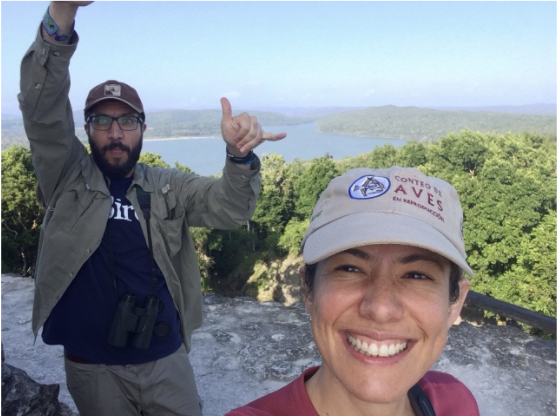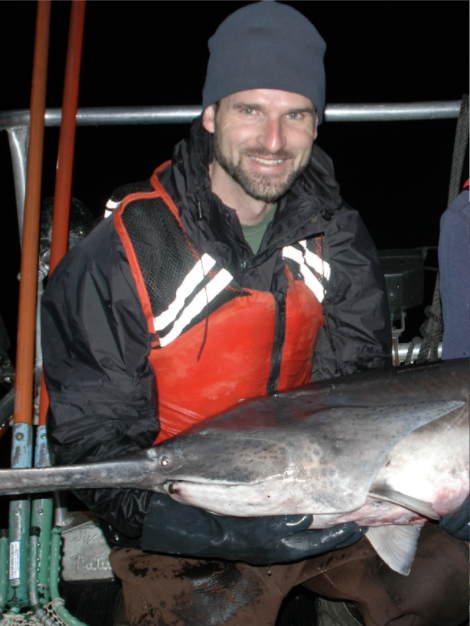Career Day: Science and Conservation Biology
The Cornell Lab of Ornithology K-12 Team hosted an awesome Conservation Career Day called The Earth is my Boss! We had speakers from all over the world talk about their careers in environmental conservation. The first session, Science and Conservation Biology, was facilitated by Kelly Schaeffer, Education Specialist of the K-12 Education Team. The field of science and conservation biology is all about learning about and protecting biodiversity, or the variety of life on Earth.

In the session, we heard from four passionate scientists and conservation biologists about their work with people and organizations to study and protect animals, plants, and ecosystems.
The first panelist, Triana Arguedas Álvarez, is a master’s student who works with shark fisheries in the Mexican Atlantic. She is studying the historical patterns of bull shark fishing in the Gulf of Mexico. Triana spent most of her childhood outside, exploring the world around her. Struck with “too many questions syndrome,” she wanted to be able to answer the many questions she had about the world. Her fieldwork involves taking water samples to determine what animals live there and tagging sharks. She encourages anyone seeking a similar path to never give up, find mentors, find your own path, and stay curious!

Panelist Dr. Gemma Clucas studies seabird conservation genetics. As she puts it, she “gets pooped on by birds for a living.” She collects fecal samples from all sorts of seabirds, including penguins, puffins, terns, gulls, and petrels, and analyzes the samples. Gemma uses the samples to sequence the fish DNA and determine the diet of the seabirds. Fecal samples help provide a deeper understanding of fish populations in the area. Her favorite part of her work is fieldwork. She shared an awesome video of her recent trip, where she visited the largest colony of penguins in the world, comprising 1.2 million pairs of penguins! The colony lives on an active volcano in Antarctica. While she was there, her team used drone imagery to count birds, collected fecal samples, and tracked the penguins. There was even a film team there to make a documentary. Dr. Clucas’ job is a balance of field and office work, as she also does a lot of statistical analysis, coding, and writing. She advises those interested in careers in science and conservation biology to never be afraid to take a gap year or time away to figure out your career passions, and never worry if you do not have a big grand plan!

Panelist Dr. Viviana Ruiz Gutierrez is a conservation scientist. She uses science and statistics to “speak for the birds” because the birds of an ecosystem can say a lot about the ecosystem’s health. Growing up, she loved nature because it made her feel free. She was taught to value nature and what it gave us, so she was inspired to conserve what she enjoys so much. Now, she works with like-minded people and travels to amazing places to advocate for nature by translating collected data from citizen science projects, like eBird, into maps and resources. Dr. Ruiz Gutierrez also is passionate about education because she wants to make sure that everyone has access to information. She encourages you all to pursue what you enjoy, be kind to yourself, create your own opportunities, and not to worry about what others want you to do!

The final panelist, Dr. Pete McIntyre, works to protect freshwater fish species and their surrounding ecosystems. His work is at the intersection of fish biology and food security; he analyzes freshwater fish, allowing us to consider how best to sustain our food systems. His passion for fish began at age seven after receiving his first fishing pole from his grandfather. From then on, he spent a lot of time fishing. He spends a lot of time teaching and also enjoys research. He works with people all over the world to better understand and protect nature. His advice to people seeking careers in conservation is to “be a sponge.” In other words, give and take information everywhere you go to get a bigger picture of the world. He also encourages people to seek out challenges because “life is a big experiment.”
Interested in a career in science and conservation biology? We are so lucky to have had such amazing people share their experiences for our fist Conservation Career Day! Their knowledge spans the globe and allowed us to get a glimpse into their work helping the environment. All of the panelists shared a similar take-home message: “At the end of the day, your happiness with your professional life directly relates to your happiness as a person.” Put your happiness first and check out the following career/job resources: The Student Conservation Association, and Texas A&M job board, and student organizations like 4-H, Boy Scouts, Girl Scouts, and Boys and Girls Club. As all the panelists emphasized, stay curious and never give up!